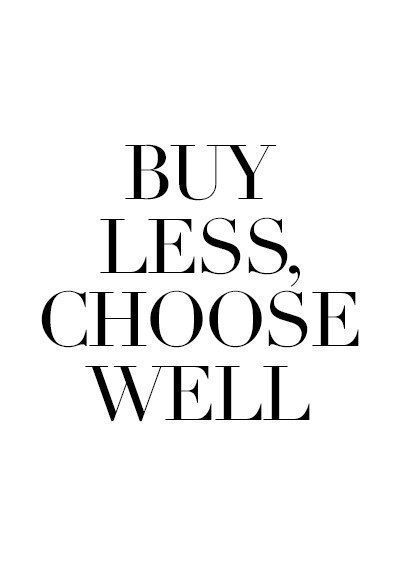- today
- perm_identity Izpol
- label Tips
- favorite 1 Likes
- remove_red_eye 27858 Visits
Recently, the fashion world has shuddered from "price tag scandals". Companies that base their business on unfair terms can be many. Nowadays, buying is very quick and easy. We also buy more and more and often do not wonder who and how he produced our clothes. Recent weeks have shown us the importance of checking brand information and buying consciously.
Check the tag
We are usually aware of what we are looking for: the right design and cut for us. We want our clothes to fit the prevailing trends. So why not broaden this awareness? We can start by checking what's on the tag. Let us pay attention to where and how the clothes purchased by us are created.
Although we know more and more about the dark side of the fashion industry, we are still not sufficiently talking about what price the environment pays for fast and cheap fashion. Pay special attention to the tags, the material and how the clothes are sewn. It is best to give yourself peace of mind with a product on which we see a label "60% polyester", and look for such clothes, where we will see, for example, "100% cotton" or "95% silk, 5% elastane". It is worth to bet on the quality of the purchased fabrics or clothes, because we will be able to enjoy them for longer.
The best choice will be products made of silk, linen, cotton, wool. Due to their quality and properties. We also recommend the wisch, which is a cheap replacement for silk. It can also have the advantages of cotton, because it is an intelligent material. During the production phase, it can be given different characteristics. If you want to know more about viscose properties click here.
Eco fashion
Fashion can be "organic" in many ways. For example, it may mean producing organic cotton that is grown without the use of plant protection products such as pesticides and artificial fertilisers. Eco-fashion can also mean that a brand produces and sells its products in accordance with fair trade rules. It can support local production that reduces the carbon footprint - so deadly to the environment. in fact, organic fashion can be something else on the part of the consumer and something else from a brand perspective.
Greenwashing
The term was meant to refer to the English word "whitewashing" meaning whitewashing. It was first used by Jay Westervelt in an article describing hotels that encouraged their guests to change towels less frequently out of supposed environmental concerns, and in fact save time on cleaning and laundry products.
In free translation, "greenwashing" means "green lie". It is a phenomenon that involves inducing the impression of customers that a product or a company producing it live in harmony with nature and ecology.
Eco-friendly certifications for clothing
GOTS (Global Organic Textile Standard). It is one of the most popular environmental certifications in Europe, which guarantees that a product has been made with respect for the environment.
Fairtrade is a fair trade certificate. It is received by manufacturers who, during the production of clothing, will meet a number of requirements. These include, for example, care for the development of local communities or the environment. Companies that do not respect workers' rights are also certified.
ECOLABEL standards for textiles apply to both natural and artificial materials. It is an EU certificate, which is awarded in Poland by the Polish Research and Certification Centre.
Let's give our clothes a second life!
In addition to being aware of buying, what we will do with clothes when we stop wearing them also plays a huge role. There are a lot of possibilities in this field: secondhandy, charity clothing collection, clothing exchange or sales on online portals. We also urge you to rework old clothes. They can be shortened, chewed buttons, sewed, and maybe even embroidered something on a t-shirt or trousers that will get a second chance. We leave creative inventive ities to you!

